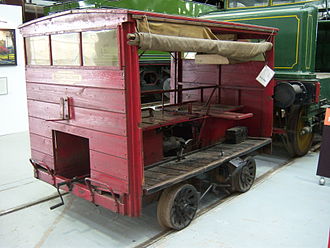Discover Your Roots
SIGN UPDiscover Your Roots
SIGN UPWickham is a gender-neutral name of English origin, meaning "Settlement." The name is derived from Old English, representing a place or settlement. It is widely used as a surname and a given name. Wickham is associated with various places, including suburbs, towns, and rivers in Australia, Canada, England, and the United States. Additionally, notable individuals bearing the name Wickham include scholars, athletes, musicians, and politicians. The name also appears in fictional works and is connected to diverse cultural references, such as an aircraft, a skin condition, and a former department store. In summary, Wickham is a name deeply rooted in English heritage and history, with a versatile and widespread presence across different aspects of society.

D. Wickham & Co, located in Ware, Hertfordshire, is renowned for the creation of the Wickham trolley, a railway engineering personnel carrier, introduced in 1922 for track inspection and maintenance. The company, established in 1886 by Dennis Wickham, initially focused on manufacturing machinery for breweries before expanding into rail trolleys and railcars. The Wickham trolleys gained popularity in the 1930s, and the company's product line diversified to include railcars, coal-mine man-riding cars, steam cleaners, and rail grinders. Wickham's railcars were utilized globally, with orders from countries such as Kenya, Uganda, Rhodesia, Colombia, Bolivia, Peru, Burma, Malaya, and North Borneo. Notably, Wickham also produced passenger diesel multiple units for British Rail in the mid-1950s. The company's contributions to the rail industry extended to the manufacturing of steel railway carriage frameworks in collaboration with Metal Sections Ltd. Wickham's commitment to innovation is evident in their production of the Elliot Track recording Coach in 1958. Wickham's legacy lives on through the preservation of their products, showcasing their significant impact on the railway industry.

Louis Frédéric Wickham, the namesake of Wickham striae or Wickham's striae, is renowned for his association with the whitish lines visible in the papules of lichen planus and other dermatoses, especially in the oral mucosa. These striae, known for their microscopic appearance showing hypergranulosis, have been a significant focus in the field of dermatology. Wickham's contributions have left a lasting impact, with his name being immortalized in the medical terminology associated with these distinct lines. For those seeking a deeper understanding of Wickham striae and their significance, the American Family Physician provides a comprehensive visual resource. Wickham's legacy continues to be felt in the medical community, with his name being synonymous with these notable striae.

Wickham Market, located in the River Deben valley, Suffolk, England, is a picturesque village with a rich historical and cultural heritage. All Saints Church, over 700 years old, is a prominent landmark with its octagonal tower and lead spire, while the Wickham Market Iron Works, a significant industrial site, played a crucial role in the village's development during the nineteenth century. The grade II* listed watermill, Deben Mill, also known as Wickham Mill, dating back to the 18th century, is a complete and functional watermill with fascinating machinery. Additionally, the village is home to the impressive Wickham Market Hoard, one of the largest Iron Age coin finds discovered in the area, shedding light on the historical significance of the region. Notable residents include early photographer Charles Emeny, businessman and former Member of Parliament Francis Lucas, Royal Portrait painter Chinwe Chukwuogo-Roy MBE, and Flora Sandes, the only British female soldier to serve in World War I. Wickham Market offers a charming blend of historical landmarks, natural beauty, and cultural significance, making it a compelling destination for visitors and history enthusiasts.
Wickham Bishops is a charming village and civil parish in Essex, England, boasting a rich history and a strong sense of community. The name Wickham Bishops originates from the Domesday Book of 1086, signifying a 'dwelling place with a (dairy) farm' that belonged to the Bishop of London. The village is part of the Wickham Bishops and Woodham electoral ward, with a population of 3,700 as of the 2011 census. St Bartholomew's, the Church of England parish church, stands as a prominent landmark, while the village offers various amenities including a village hall, playing fields, a library, and more. Wickham Bishops is also home to a vibrant drama club and hosts Girlguiding and Scouting groups. The B1018 road runs through the village, and the area is served by the nearby Witham railway station. Notable individuals associated with Wickham Bishops include former England cricket captain Sir Alastair Cook and composer Nicola LeFanu. With its picturesque setting and strong community spirit, Wickham Bishops is a delightful place with much to offer.

C. Wickham Skinner (February 20, 1924 – January 28, 2019) was an influential American business theorist and Emeritus James E. Robison Professor of Business Administration at the Harvard Business School. Often referred to as "the father of manufacturing strategy," Skinner's impact on the field has been profound. He graduated from Yale University with a bachelor's degree in chemical engineering and later earned a master's degree in business administration from Harvard Business School. Skinner's career included a decade at Honeywell before returning to his alma mater as a professor. He served in various leadership roles, including Director of International Activities and Associate Dean. His notable works include "Impact of New Technology: People and Organizations in Manufacturing and Allied Industries" and "Manufacturing: The Formidable Competitive Weapon." Skinner's insightful articles, such as "Manufacturing—Missing Link in Corporate Strategy" and "The Productivity Paradox," have left a lasting impression on the business world. His contributions were recognized with prestigious honors, including an honorary doctorate from the University of Ghent and being named a Fellow of the Academy of Management. Skinner's legacy continues to inspire and inform the study of business strategy and manufacturing.
All images displayed on this page are sourced from Wikipedia or Wikimedia Commons.We use these images under their respective Creative Commons or public domain licenses. Wherever applicable, author attributions and license information are provided. If you believe an image is used incorrectly or outside its license terms, please contact us so that we can review and correct the issue.